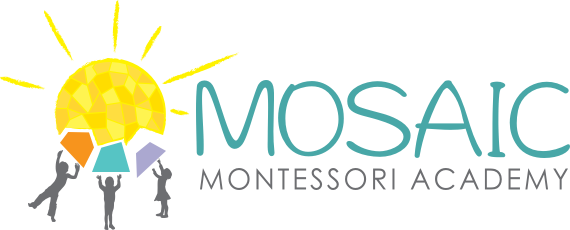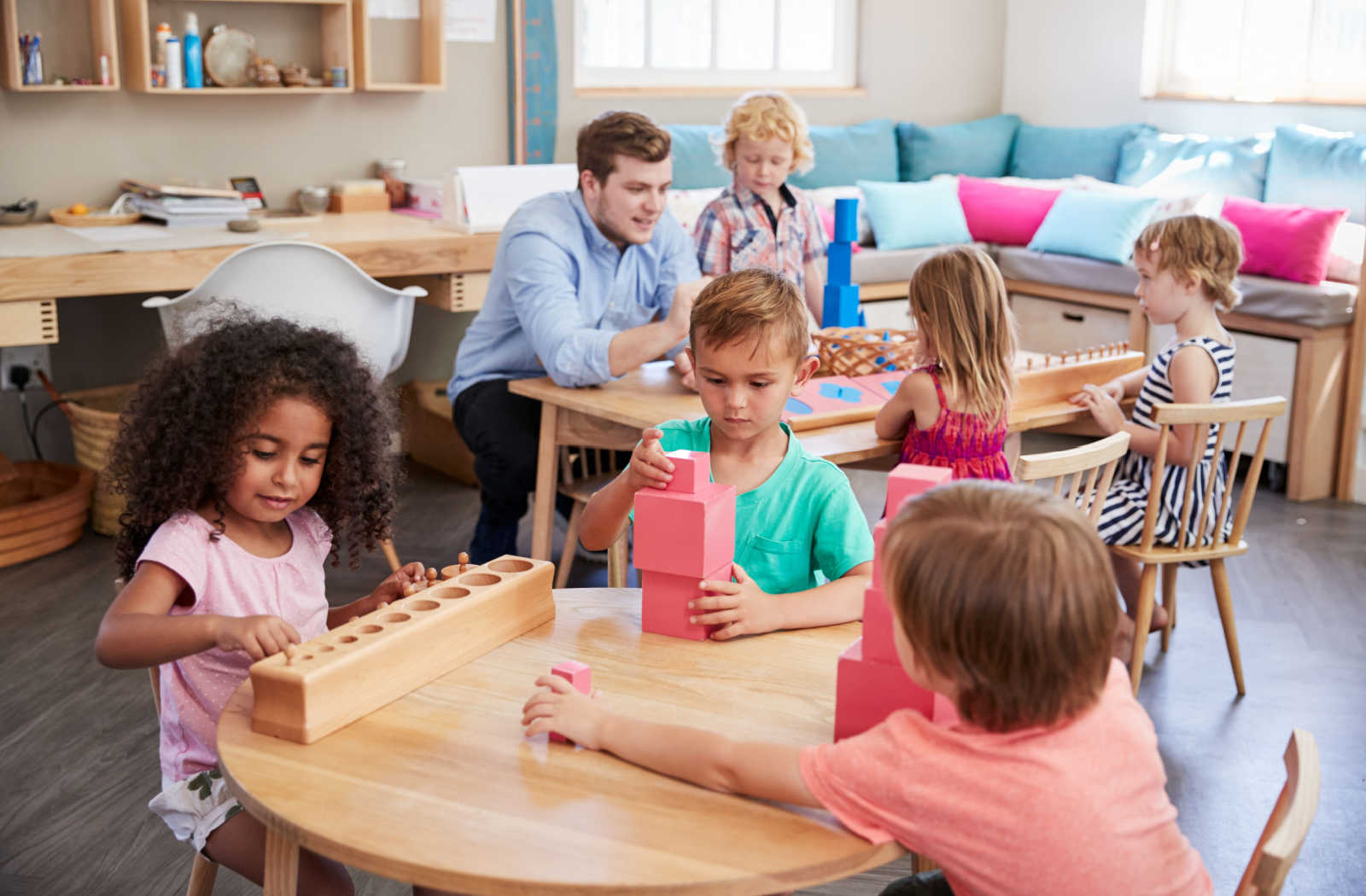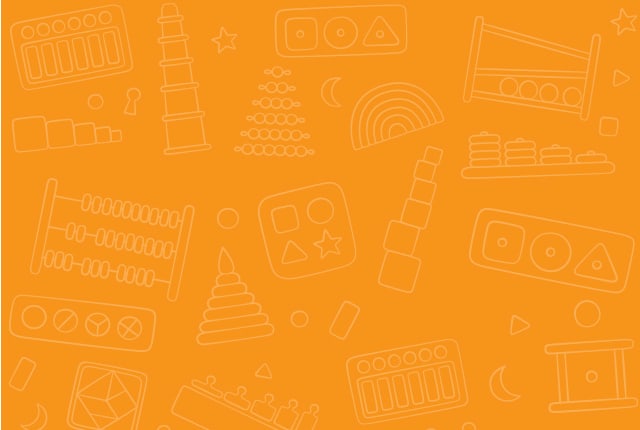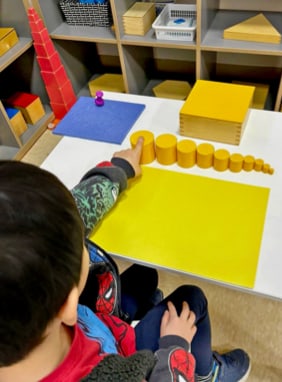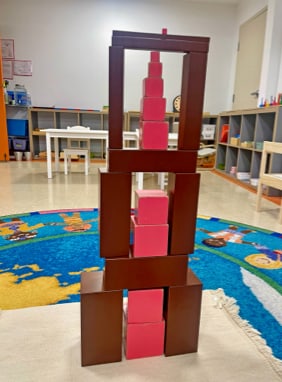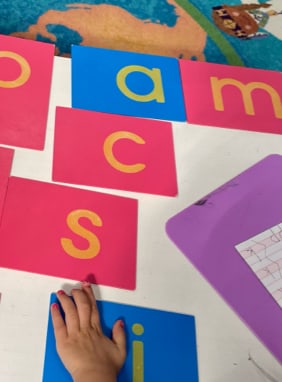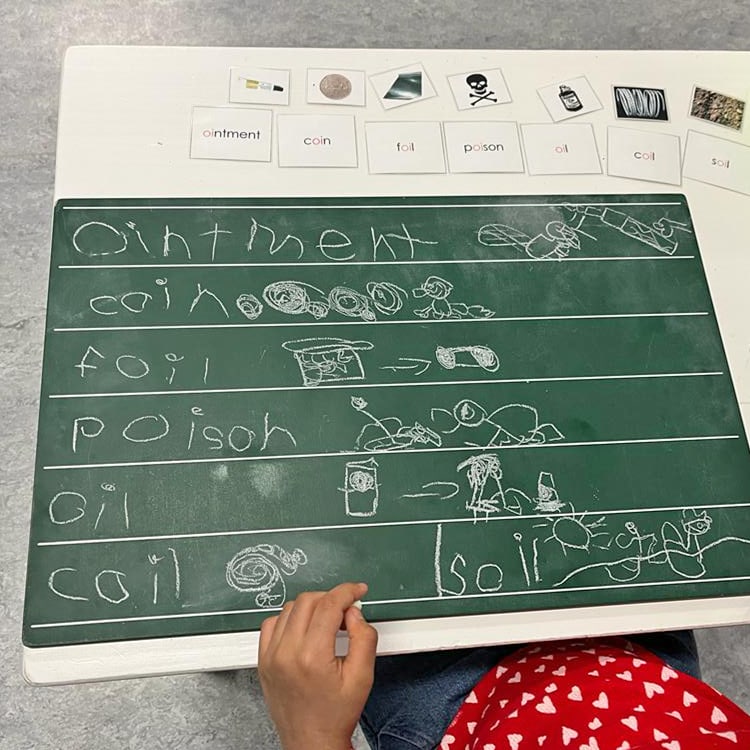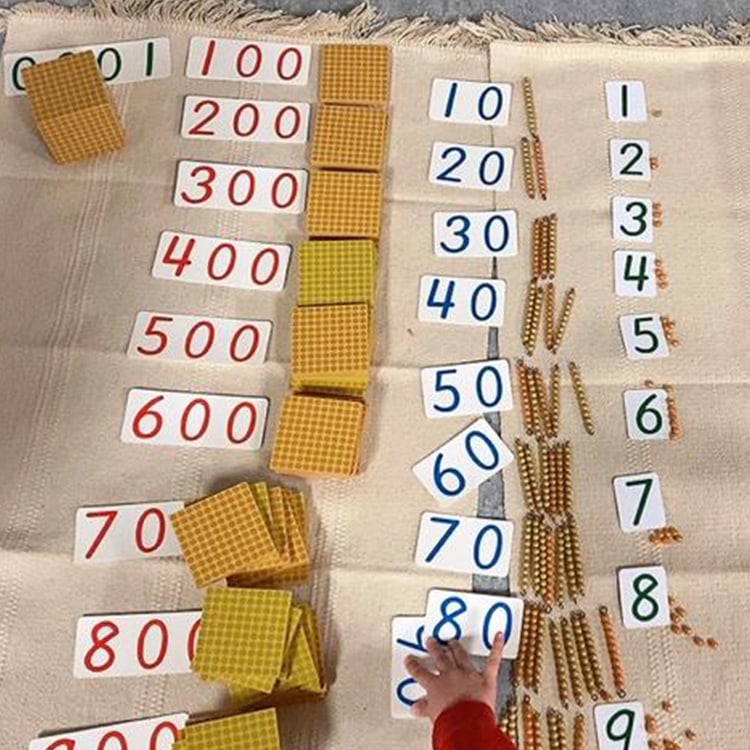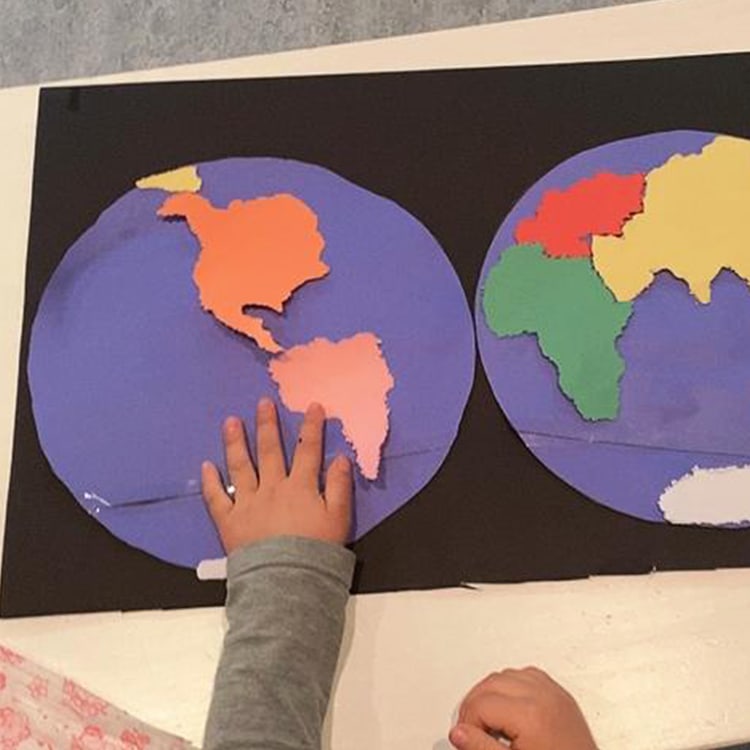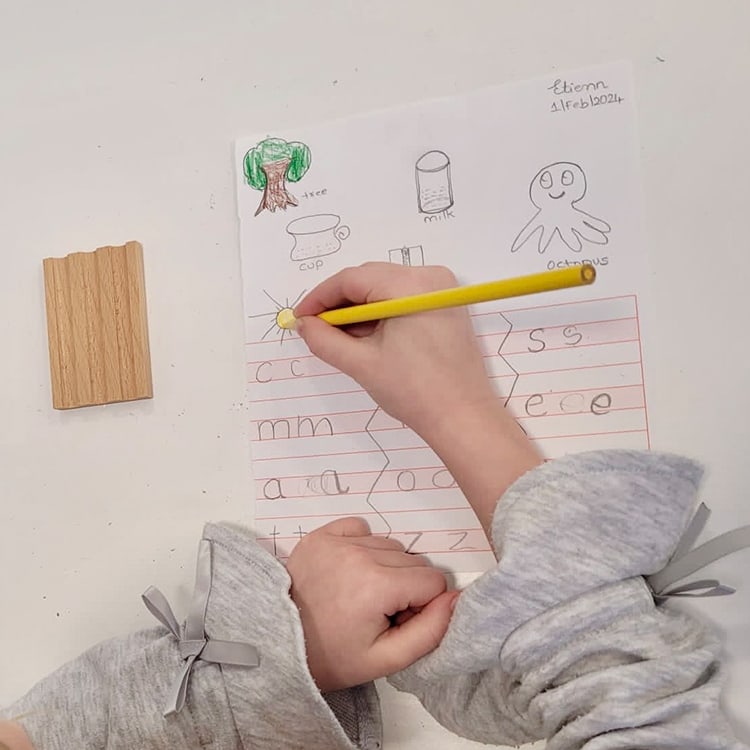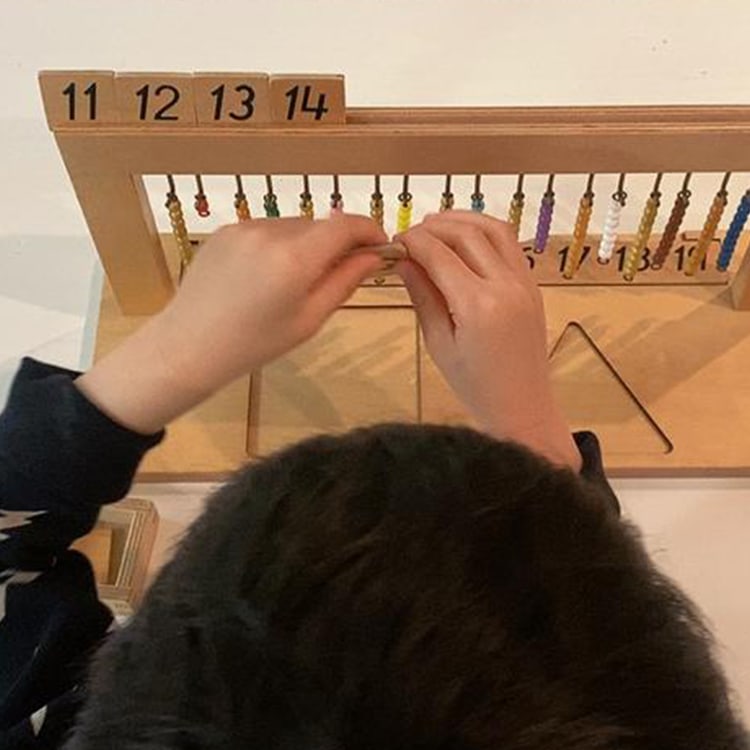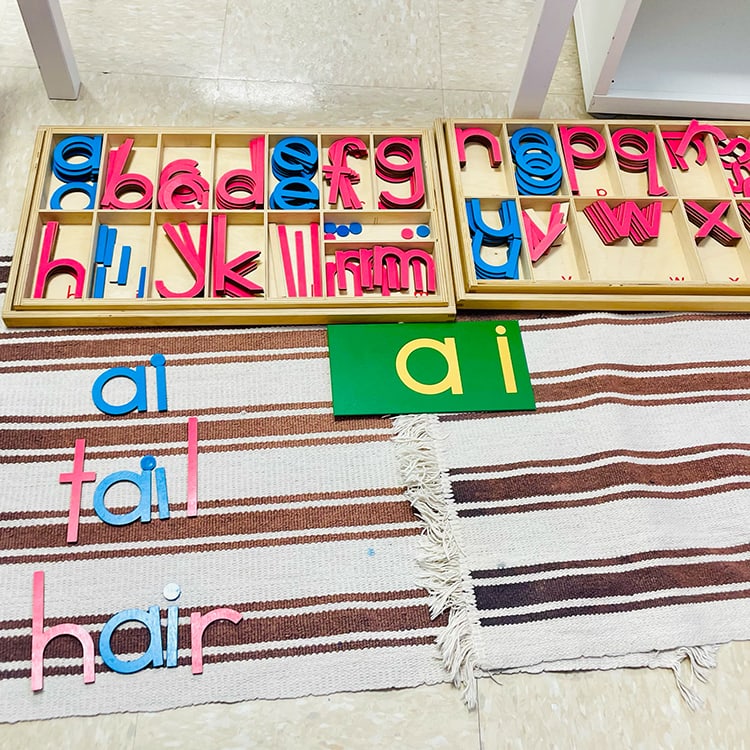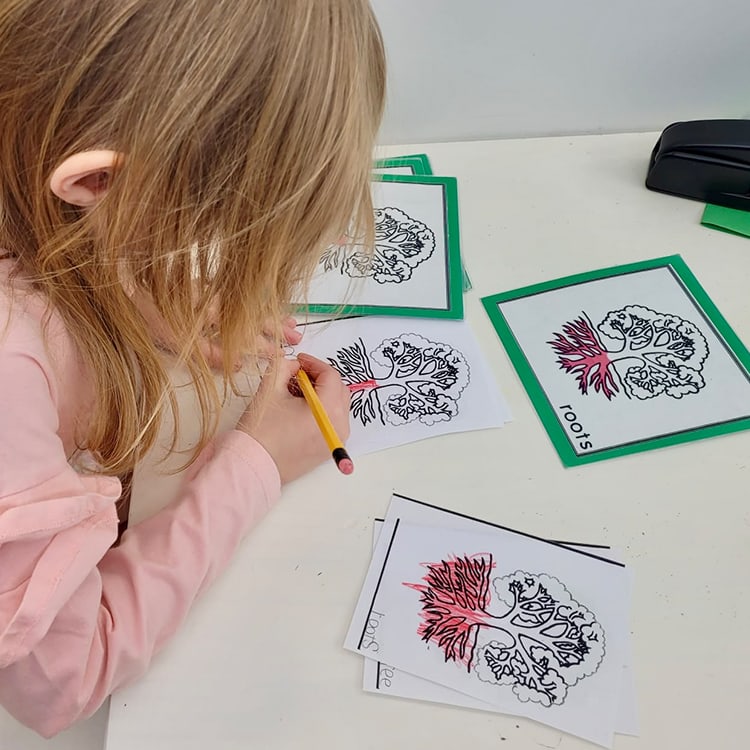A Montessori classroom is a unique environment that encourages children to explore and learn according to their individual needs. Montessori promotes independence, creativity, self-discipline, and responsibility. The classroom is designed to be stimulating and inviting, with materials and activities that engage and challenge children.
The classroom is divided into different areas to help children develop various skills. These include practical life, language, math, and sensorial:
- The practical life area focuses on pouring, sorting, and cleaning.
- The language area involves reading, writing, and speaking.
- The math area covers counting, sorting, and problem-solving.
- The sensorial area allows children to explore their senses through matching, sorting, and texture activities.
The Montessori Classroom Environment
In addition to the unique approach to education, the Montessori classroom is designed with specific elements to enhance the learning experience and support the development of crucial skills:
- Child-centered: Children have freedom and independence in choosing their activities and materials, allowing them to take ownership of their education.
- Orderly and organized: The Montessori classroom is tidy and organized, with designated spaces for different activities to help children develop a sense of structure and routine.
- Multi-age groupings: In a typical Montessori classroom, children of different ages work together in the same environment, promoting peer learning and allowing older students to mentor younger ones.
- Hands-on learning: The materials in a Montessori classroom are specifically designed to be hands-on and interactive, allowing children to engage all of their senses in the learning process.
- Beauty and nature: Montessori classrooms often include elements of beauty and nature, such as plants, artwork, and natural lighting, to create a peaceful and inviting atmosphere for learning.
- Collaboration and community: Children are encouraged to work together and collaborate on projects. This arrangement fosters community and teaches children how to work effectively with others.
Montessori Classroom Materials
Montessori classroom materials and educational toys are carefully selected to provide an engaging and self-paced learning experience. They are designed to be self-correcting, multi-sensory, and open-ended.
From puzzles and blocks to sandpaper letters and counting rods, Montessori materials stimulate, engage, and enrich children as they explore and learn.
The Role of the Montessori Teacher
A Montessori classroom offers a unique and nurturing environment that helps foster independence and self-discovery. At its core is the Montessori teacher, who plays a vital role in creating a safe and supportive space for children to explore and learn. As a guide, the Montessori teacher provides materials and guidance for children to develop skills and knowledge.
They also cultivate respect and kindness, where children can freely express themselves. The Montessori teacher serves as a role model, exemplifying patience and empathy. By fostering a supportive environment, they help children develop self-confidence and independence.
The Benefits of a Montessori Classroom
The best Montessori classrooms support childhood development in various ways.
They Promote Independence
In a Montessori classroom, children are encouraged to do things for themselves, such as preparing their own snacks or cleaning up after an activity. These actions help promote independence and build self-confidence.
They Encourage Self-Directed Learning
The classroom is designed to allow children to choose their activities and work at their own pace, encouraging them to make decisions for themselves while fostering a love for learning.
They Develop Social Skills
In a mixed-age classroom, older children often serve as role models for younger ones. Montessori classrooms make space for peer teaching, collaboration, and social skill development.
They Emphasize Practical Life Skills
The practical life area in a Montessori classroom focuses on everyday activities that help children develop fine motor skills, hand-eye coordination, and concentration. These skills are essential for later academic success.
They Encourage Individualized Education
With a wide range of materials and activities available in the classroom, each child can work at their own level and pace, allowing for individualized education and meeting each child’s needs.
They Foster Multi-Sensory Learning
The Montessori classroom revolves around a rich multi-sensory learning environment, allowing children to learn using their senses. Using the senses helps children understand and retain information better.
They Promote Creativity & Imagination
The open-ended nature of Montessori materials and activities encourages children to use their creativity and imagination, fostering a love for learning and encouraging problem-solving skills.
They Emphasize Respect & Responsibility
The Montessori method emphasizes respect for oneself, others, and the environment. Children are encouraged to take care of the classroom materials and keep the environment clean, which also helps promote responsibility.
Builds a Strong Foundation for Future Learning
The Montessori approach focuses on developing foundational skills like concentration, independence, and self-motivation. These skills provide a strong foundation for future learning.
Encourages a Growth Mindset
In a Montessori classroom, mistakes are seen as opportunities for learning and growth. This approach encourages children to have a growth mindset and embrace challenges, creating a safe space.

Unlock Your Child’s Potential with Mosaic Montessori Academy
The Montessori classroom is a unique and beneficial learning environment that encourages children to explore, discover, and develop their skills and interests. At Mosaic Montessori Academy, our classrooms are carefully designed and equipped with a wide range of Montessori materials, providing a diverse and engaging learning experience. Our highly trained teachers create a nurturing and supportive environment for every child. Contact us today to learn how we can help your child thrive in a Montessori classroom.
